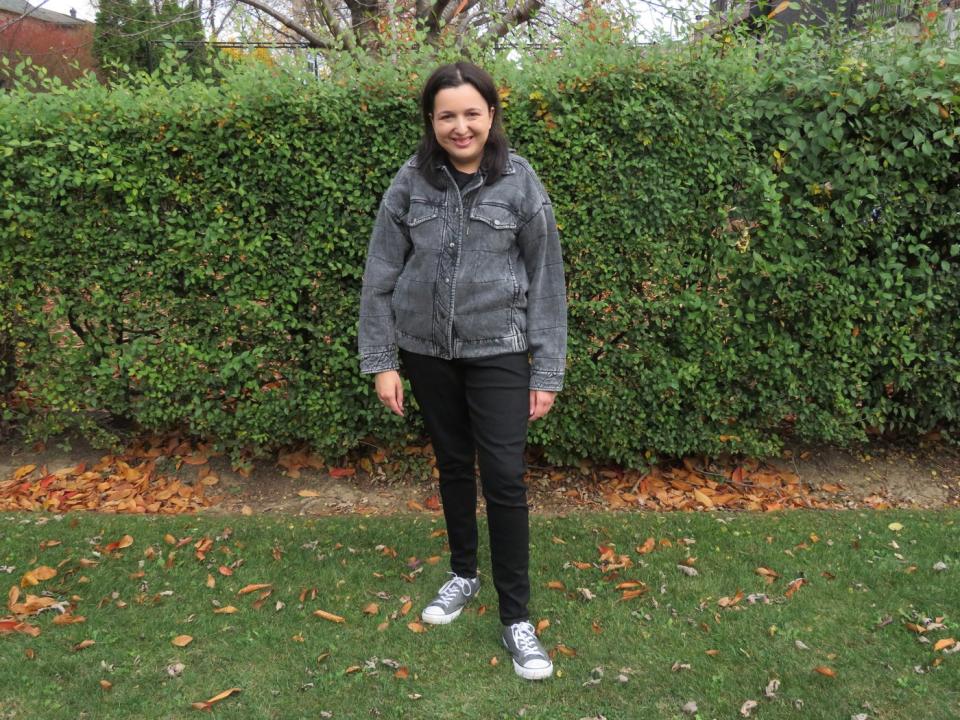How to find — and use — a budgeting app that works best for you

Chit-chat around the water cooler introduced Sarah Prince to her first budgeting app. A decade later, Prince says she still sees their value even after her favourite financial tool went under earlier this year.
"It was interesting to track my spending over time," Prince said.
For her, it wasn't just about tracking her monthly expenses, it was also seeing how her spending patterns changed over the years.
"I started out as an intern, then started making more money and travelling, and my habits changed," she said. Prince was mostly aware of her habits but the budgeting app helped her put numbers into perspective and track every dollar spent on commutes, ride-share trips and personal care.
Sandra Fry, a credit counsellor with Credit Counselling Society, said people often find it challenging to record expenses on a day-to-day basis but an app can do that heavy lifting for them.
A budgeting app can put bank accounts, credit cards, loans and investments in one place to help provide a broader financial picture.
Banks have also started offering budgeting tools which track spending and flag any suspicious transactions — such as new vendors or payments.
"That can be a real eye-opener for people," she said, adding that banks already have layers of security and can be better than third-party apps.
Banking apps itemize the expenses for the user but Fry said that doesn't always ensure accuracy. For instance, Walmart sells groceries but people also shop there for clothing, appliances and homeware. While budgeting apps can also miscategorize transactions, it is easier to edit and personalize them.
Prince's favourite app was Intuit's Mint, which stopped operating in March of this year. She hasn't found an alternative to go back to tracking her budgeting journey and has since been tracking her spending on a notes app on her phone. She said she tried her bank's budgeting tool but it didn't check the right boxes for her.
Jessica Morgan, founder of the blog site Canadianbudget.ca, said a paid subscription may feel like an added expense for people trying to save money.
"If people are having difficulties making ends meet," she said, "signing up for a monthly subscription may not be the best thing."
Morgan suggested using paper-based budgeting or Excel sheets that may have a one-time fee. She added using spreadsheets doesn't limit budgeting to desktops anymore and can be tracked on the respective apps.
While budgeting apps can be useful to some, Morgan said deciding whether it will work for a person depends on their individual needs.
"A lot of people spend a lot of time on their phones and may not want to add another app to their phones to do it," she said. "It's really about personal preferences, their lifestyle and preferred methods of everyday budgeting."
She said paper-based tracking and spreadsheets are both easily customizable to an individual situation but that could be hard for apps to do so. Apps might not be the best way to track expenses and income for freelancers and those with inconsistent incomes, Morgan added.
For instance, Morgan said her monthly budget on the spreadsheet is set from 25th to the next month's 24th, instead of the usual first day of every month.
"You can make them the way you want instead of trying to fit into the box that the app has given you," she said.
Meanwhile, Fry says she doesn't often recommend her clients use budgeting apps because of security reasons and instead encourages them to record expenses manually.
Cybersecurity needs to be a top priority when choosing a financial app that uses, links to and even stores sensitive banking and credit card data.
Traditionally, when people sought financial help, people would go see an adviser and talk money in private and would know that information is safe with the professional, said Robert Falzon, head of engineering at cybersecurity firm Check Point Software Technologies, Ltd.
"With using apps online, we're doing the same thing but there is no expectation of safety," he added.
Data theft often tops the list of concerns among budgeting app users, but Falzon said there are ways to work with these apps safely.
Using strong passwords and multi-factor authentication can help prevent breaches right from the start, he said. Using bank-provided budgeting apps that are local to Canada, or tools from reputable organizations, can also help avoid vulnerabilities.
Other safety tips include using apps that have encryption and a robust security protocol, Falzon said. Making sure there's security software on mobile devices and that people are not using public Wi-Fi to access their banks or financial apps.
"It's like shouting out your personal information in an airport lobby," he said.
This report by The Canadian Press was first published July 2, 2024.
Ritika Dubey, The Canadian Press

 Yahoo Finance
Yahoo Finance 